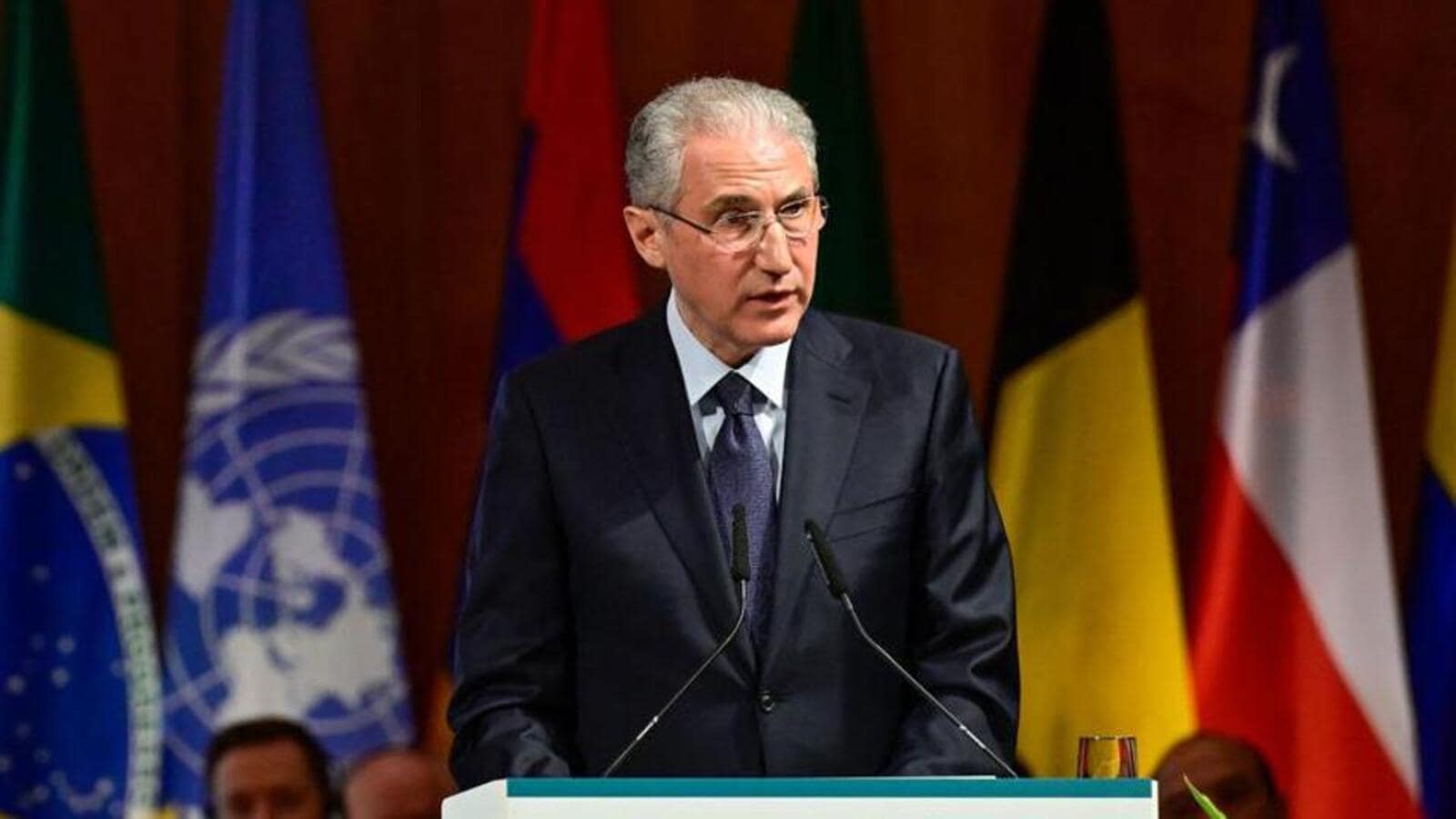


Mukhtar Babayev, president of the United Nations COP29, has called on members to enhance their climate plans to make them 1.5°C compliant and put in place finances to achieve those plans.
“The COP29 Presidency’s top negotiating priority is agreeing a fair and ambitious New Collective Quantified Goal on climate finance (NCQG) adequate to the urgency and scale of the problem, taking into account the needs and priorities of developing country parties. Our efforts should include the full scope and potential of the resources that need to be made available,” said Babayev in the first letter sent on Wednesday to all 198 member countries of the UN Climate Convention.
“Growing geopolitical tensions and uncertainty in the international environment must not distract us from the imperative to collaborate and address climate change as the greatest transnational challenge of the century,” the letter states.
The COP29 climate talks will take place in Azerbaijan from November 11-22 and it is being held in a year of elections.
At least 64 countries including the European Union (EU) have held or are set to hold polls this year.
Among them, US presidential polls will be key as historically it is the largest greenhouse gas emissions (GHG) polluter.
Donald Trump would ensure the United States withdraws out of the Paris climate agreement for the second time if he wins the presidency again in November, Politico reported on June 28.
Also Read: Global conflict, climate finance in focus before COP29 in Baku
The statement comes after years of conservatives laying the groundwork for Trump to withdraw from the global agreement intended to reduce emissions of the greenhouse gases causing climate change.
HT has reported that the primary agenda of the annual UN climate meeting to be held in Baku in Azerbaijan in November would be to negotiate a new goal for climate finance, which currently has a floor of a minimum of $100 billion every year after 2025, that is expected to help developing countries transition to a low-carbon future.
According to the high-level expert group on Climate Finance, at least $2.4 trillion is needed every year to invest in renewable energy, adaptation, and other climate-related issues in developing countries, excluding China.
Negotiations on the new finance goal has been fraught with challenges and lack of consensus so far.
Differences between the rich and developing countries over their contribution towards the new quantified goal on climate finance has remained the bone of contention, according to the Third World Network, an independent non-profit that was tracking the negotiations at Cartagena in Columbia in April.
In an Ad Hoc Work Programme (AHWP) of the United Nations Framework Convention on Climate Change (UNFCCC), held in Cartagena in Colombia from April 23 to 26, the US had said the New Collective Quantified Goal (NCQG) is “voluntary” for those that “choose to pay”, referring to Article 9.3 of the 2015 Paris climate pact that deals with climate finance.
The US repeated its stance on how contributing to the new fund, meant to replace the existing goal of $100 billion per year, should be voluntary again at the Bonn climate talks in June. The Arab group, Cuba and African nations have called for determining the quantum of the new goal.
The COP29 Presidency called on member nations to submit 1.5-aligned Nationally determined contributions (NDCs), also stating that Azerbaijan would lead by example, along with its COP28 and COP30 partners, the UAE and Brazil.
In an early step to intensify discussions, the COP29 Presidency announced that it has appointed ministers Dan Jorgensen of Denmark and Yasmine Fouad of Egypt as ministerial pairs for the New Collective Quantified Goal on Climate Finance (NCQG).
These ministers will be additional focal points for the global negotiations and help to find common ground between countries.
The COP29 Presidency will host Heads of Delegations in Azerbaijan from 26-27 July, which will focus on the NCQG and ensure progress on negotiations across all pillars of the Paris Agreement, including key mandates such as Article 6 (carbon markets).
“As the COP29 Presidency, we encourage all Parties to come forward with their own 1.5- aligned NDCs at the earliest opportunity and well ahead of the 10 February 2025 deadline. NDCs should be informed by the science and the Global Stocktake outcome, in light of different national circumstances and foster investment and support,” the letter states adding that “The COP29 Presidency will lead by example. As we announced with our Troika partners, Azerbaijan, the UAE and Brazil are working on submitting 1.5-aligned NDCs.
COP29 CEO Elnur Soltanov and deputy minister of ecology and natural resources Umayra Taghiyeva are leading an interagency working group to submit Azerbaijan’s NDC early and prepare its first Long-Term Development Strategy (LTS).
Azerbaijan will integrate its NDC within its LTS and we call on all Parties to ensure that they are working across their respective governments to mainstream climate action into their sustainable development aspirations and priorities.”